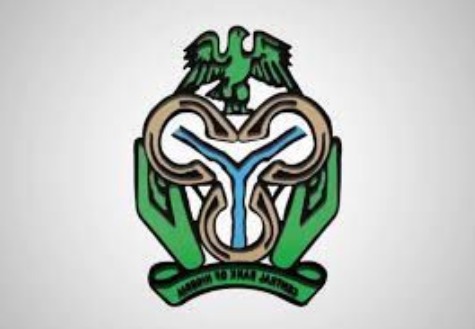BY TAOFIK BANKOLE
Investing is a universal wealth-building strategy established by financial and economic experts as one of the clearest pathways to achieving a financially inclusive society and uplifting global economies. Smart investments, expert analysts say, offer a growth potential that includes investors’ monies outpacing inflation and increasing in value, largely due to its compounding power and the risk-return tradeoff.
In Nigeria, Africa’s most populous nation with peculiar economic pitfalls that leaves 33 per cent of its 200 million population living in extreme poverty, investing is touted by financial analysts as one of the critical pathways to improve its precarious position as a poverty capital of the world. Unfortunately, it is common for unsuspecting citizens to fall victim to unlicensed and fraudulent financial operators offering mouthwatering returns on investments. The familiar scenario has, at different times, prompted the country’s apex bank, the Central Bank of Nigeria (CBN), to issue public statements advising citizens against turning their attention to such firms that offer up to 100 per cent return on investments.
“The general public is advised to refrain from dealing with unlicensed or illegal financial operators, who lure and defraud unsuspecting members of the public by offering extra-ordinary returns on investments as bait,” the CBN, through its Financial Services Regulation Coordinating Committee (FSRCC), said in its latest warning in April 2022.
In its much-needed caution to the public, the financial regulator went on to add, “Members of the public are advised to visit the websites of the Central Bank of Nigeria (CBN), Securities and Exchange Commission (SEC) and other relevant member agencies of the FSRCC to verify the registration and license status of such companies and schemes before investing in them.”
Ideally, this warning should be of little or no concern to investors who are smart enough to put their hard-earned money into publicly-traded commercial banks in Nigeria. At least, per CBN, these banks are well registered and boast active license status. Except that, beyond locking their money safely away as investments in these banks’ shares, millions of investors know little or nothing about their rights and entitlements as shareholders and are as a consequence disenfranchised from decisions that directly impact their returns.
The uninformed shareholder
A critical part of the problem is that many investors do not consider themselves shareholders in the publicly-traded companies they have invested in, as they are of the notion that only investors with huge sums of money or high societal status can lay claim to the title. However, a shareholder, by definition, can be anyone who invests and owns shares in a private or public corporation that issues shares. A company shareholder can, in fact, hold as little as one share.
Many Nigerian investors, due to this lack of knowledge and understanding of legal bindings, are unable to make informed decisions regarding how to exercise their rights and have their say during Annual General Meetings (AGMs). It is common to find many of them to only follow the stock performance on the stock exchange or pages of business papers, thereby missing out on vital information on company decisions or proceedings that could greatly impact the outcome of their investments.
Shareholders and unissued shares
This common problem comes to the fore in the recent developments surrounding the treatment of unissued shares by some of Nigeria’s most popular banks, with many shareholders missing out on the decision-making process in the implementation of the Companies and Allied Matters Act (CAMA) 2020.
The CAMA 2020 contains the introduction of a ‘minimum issued share capital’ principle which mandates companies to fully issue their capital shares at all times. Companies can achieve this either by issuing the shares to new shareholders, carrying out bonus issuance and allotment to existing shareholders, or reducing the company’s share capital by cancelling all unissued shares without breaching the new prescribed minimum share capital.
As such, the old phenomenon where companies retained unissued shares for future allotments or freely floated shares for purposes such as the employee share scheme is effectively brought to a close. Section 124 of the much-anticipated act signed into law by the Federal Government in August 2020, in part, gives a company or its directors the power to allot shares, provided that any conditions imposed either in the articles or from time to time by the company in general meetings are met. This section clearly points to the critical role shareholders are entitled to play in determining the direction they want proceedings to go, provided they are allowed to take full participation in AGMs.
During AGMs, a shareholder by law, has the right to, among others, vote in the proceedings, receive a dividend or profit whenever dividend is declared, inspect the company’s statutory books, acquire more shares in the company, and also attend meetings and contribute to the affairs of the company. And in contributing to a company’s affairs, a shakeholder has the power to influence the management of the company, through the control of the election of the board of directors.
In its 60th AGM in April, the United Bank of Africa (UBA) was transparent to shareholders in its resolve to cancel unissued shares amounting to 10.8 billion ordinary shares of 50 kobo each, per its articles and in compliance with the requirements of Section 124 of the CAMA 2020 and Regulation 13 of the Companies Regulations 2021.
Similarly, at its AGM a month after UBA’s, Wema Bank also explained that its shareholders unanimously resolved that its directors will issue or cancel any of its unissued share capital after the completion of a rights issue exercise.
It is, however, a slightly different approach from other banking institutions. Zenith Bank, in its address of its unissued shares in a notice to shareholders ahead of its AGM in April 2022, said it was authorising its directors to “take steps to comply with the regulations of the Company and Allied Matters Act (CAMA) 2020 and the Company Regulations 2021 as it relates to unissued shares currently standing to the capital of the company including but not limited to the cancellation of such unissued shares of the company”. The bank said further that its directors are “authorised to enter into and execute any agreements, deeds, notices, and any other documents necessary for and/or incidental to affecting the resolution.”
FBN Holdings’ (FBN) – parent company of First Bank of Nigeria – agenda on unissued shares at its recent 10th AGM in June mirrors Zenith’s, with directors receiving blanket powers to dictate proceedings. Both banks’ resolutions imply that all shareholders have agreed to give up their rights to make the decision and are comfortable with giving the board of directors the power to reach a verdict on their behalf.
It would appear as if there are no missteps in these banks’ approach to handling their unissued shares. After all, they would say that the commencement of the AGMs and participation by shareholders were effectively communicated. It is, however, worth querying if all shareholders were actively involved in the processes before the final resolutions were reached, considering the prevalent lack of awareness about their rights to influence decisions.
In the case of FBN, especially, the bank appears to once again be swimming in murky waters considering the shake-up by the CBN Governor Godwin Emefiele last year. Considering that the dust from the disruptions is yet to settle, as there continues to be a tussle over who has ‘controlling shares’ in FBN, shareholders have valid reasons to be concerned about how what happens with the bank’s unissued shares would impact their investments. Whatever the direction the bank’s directors choose to toe with the 14.2 billion unissued shares will have significant and direct implications on share prices and dividends per share for shareholders. This is why the lack of clarity is worrying and those with stake in the bank must ask questions. But what powers do shareholders have to flex in matters of this magnitude and importance?
The power of the shareholder
Section 248 (1) of the Companies and Allied matters Act (CAMA) 2020 expressly states that “at any general meeting, a resolution put to the vote shall be decided on a show of hands, unless a poll is (before or on the declaration of the result of the show of hands) demanded either by the chairman where he is a shareholder or a proxy; at least three members present in person or by proxy; or a member or members present in person or by proxy and representing at least one-tenth of the total voting rights of all the members having the right to vote at the meeting. Likewise, Section 249 (2) of the same act says the instrument appointing a proxy to vote at a meeting of a company is also deemed to confer authority to demand or join in demanding a poll.
Under these provisions, it is clear that a demand by a person acting as proxy for a shareholder is the same as a demand by the shareholder. And if any shareholder – represented in person or by proxy – feels disenfranchised from exercising their rights and having any significant input in the process, such disenfranchisement violates the law. In such cases, it is the responsibility of the CBN to intervene and ensure a level playing ground where all shareholders are afforded equal opportunities to practice their rights and determine the fate of their investments.
In the absence of such rights, the Banks and Other Financial Institutions Act (BOFIA) 2020 unambiguously covers base. Section 33 of the BOFIA 2020, for instance, states that the CBN Governor has the power to order an investigation or examination of the books and affairs of a bank if an application or complaint is made by a director or shareholder of the bank. Also, a part of Section 34 of the act proffers that the CBN Governor may, by an order in writing, remove from office with immediate effect any director of a bank, or appoint any person(s) as director(s) of a bank and order the payment of the remuneration associated with such position.
That is how much power the CBN wields in ensuring the protection of shareholders’ rights. And if it would, therefore, ensure transparency in the processes surrounding the issuance of shares, the appointment of new directors, and other proceedings at AGMs by commercial banks, the CBN needs to immediately begin to utilise its position as an authoritative financial regulator for fair and unbiased implementation of the law.
Only then can shareholders trust that they can freely exercise their rights to participate and effectuate desired outcomes and that their investments are secure.
Bankole is an independent writer and analyst on public matters that affect everyday Nigerians.






